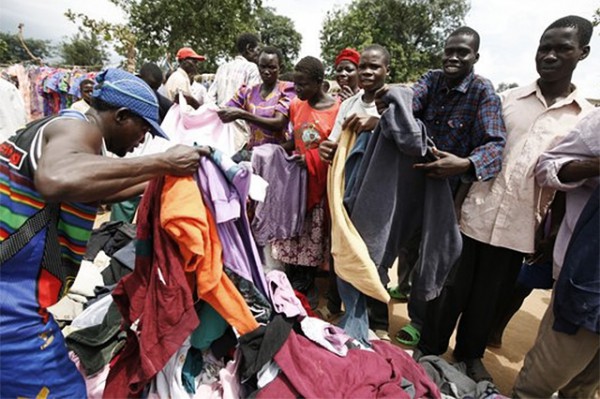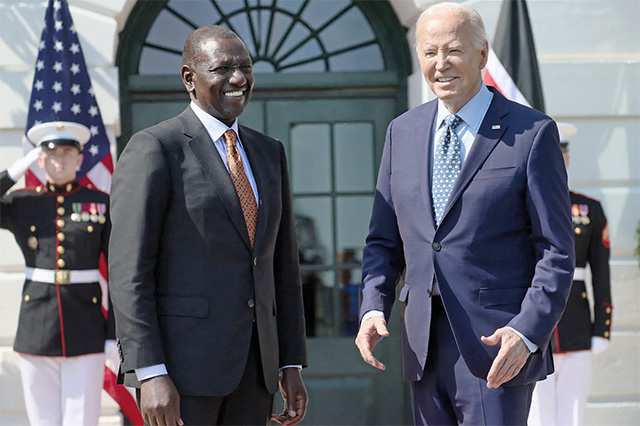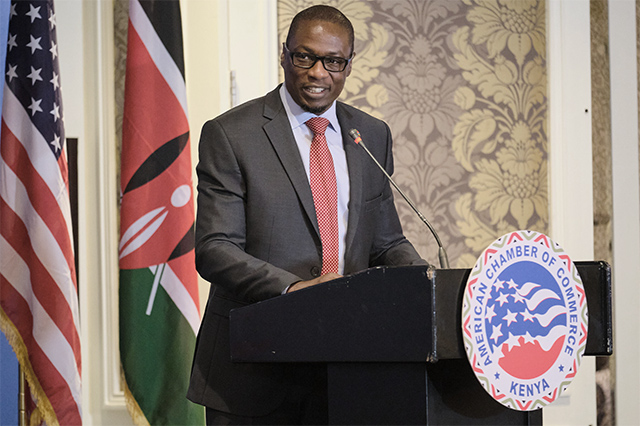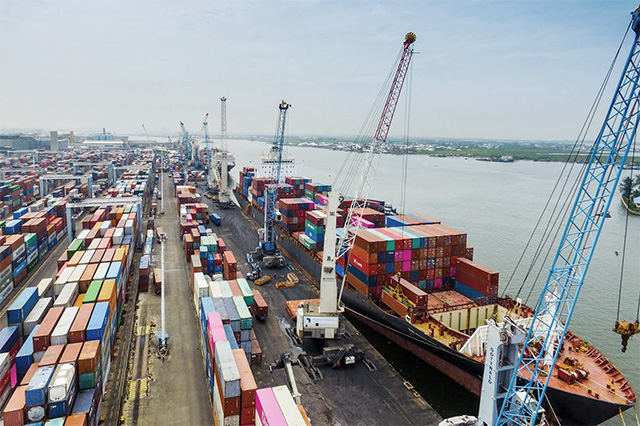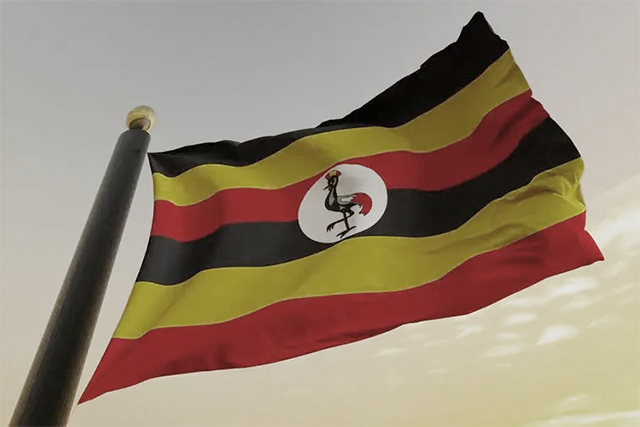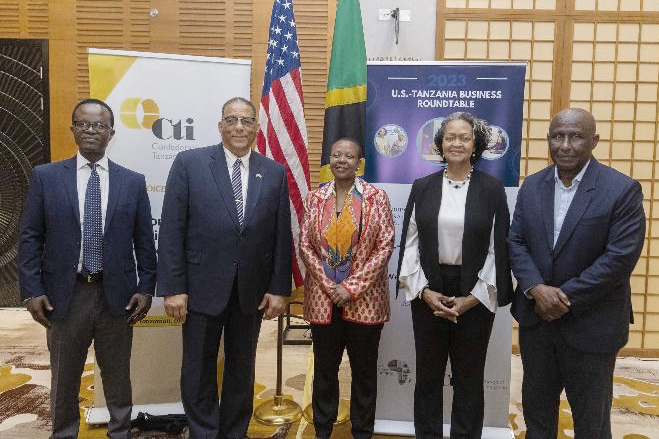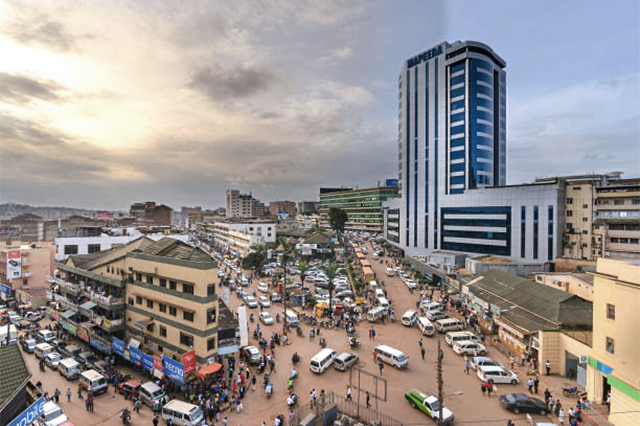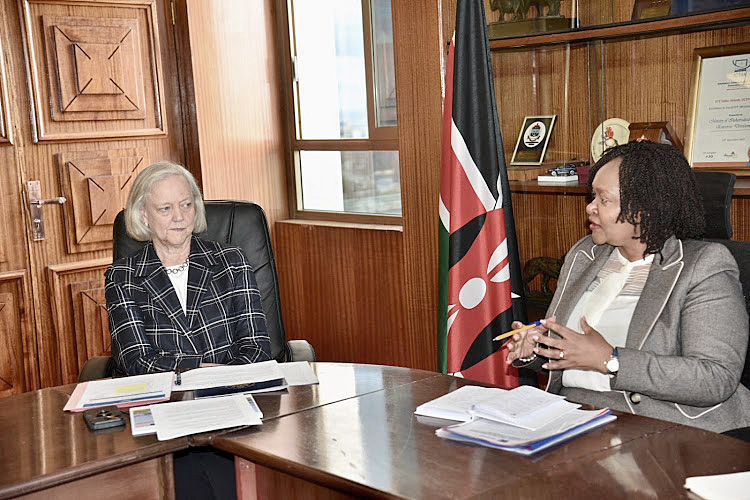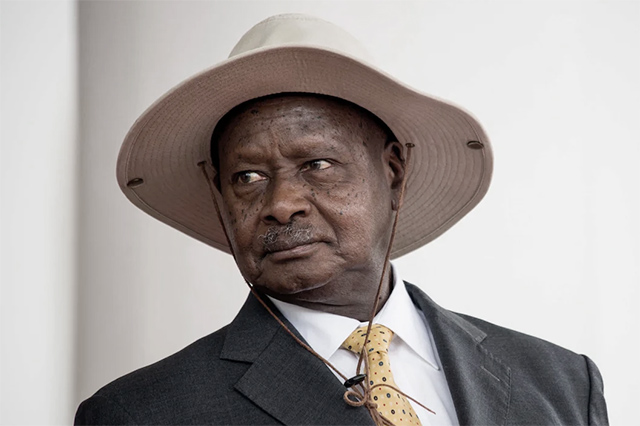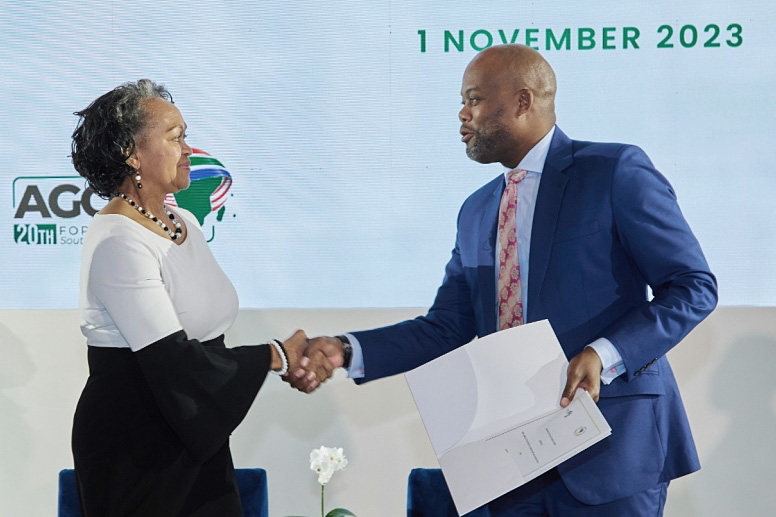AGOA at risk in East African war over used clothes
Among optimists, the proposal by East African Community (EAC) member states to ban the importation of used clothes by 2019 is great because it could spark the growth of a local textile industry in the bloc.
But pessimists say the move will complicate the region’s trade arrangements with leading partners including the U.S. which is also a large exporter of used clothes to the region.
It could also increase the cost of clothes in countries where the majority of the population is poor and lead to the import of new cheap clothes to out-compete the very industries the regional governments seek to protect.
Faced with these options, some business analysts are proposing a middle-ground that reflects the status quo. They say the region is better off allowing entry of used clothes as it also develops its own textile industry.
“As a region, there’s need to allow entry of any products provided there are no illegalities in the sale of those items on our markets while at the same time boosting their production locally,” said Charles Ocici, the executive director at Enterprise Uganda, a USAID-sponsored agency for equipping skills to small and medium firms.
He suggests a co-existence of used and new clothes in the regional markets and the use of taxes to ensure fair competition between them.
That way, Ocici says, the burden of the ban will not only be felt by the poor but by all clothing consumers, who will, in turn, buy the locally made clothes.
He added that the co-existence will also make EAC avoid unnecessarily frictions with the powers where used clothes originate.
Isaac Shinyekwa, the head of Trade and Regional Integration Department at the Makerere University-based Economic Policy and Research Centre (EPRC) told The Independent in an interview that banning used clothes will leave the population naked.
“We indeed need to stop second clothes coming in because they are affecting the growth of our textile industries. But we cannot just wake up one day and say we are stopping it. What is in place to ensure that that gap is filled?” he asked.
He said leaders of the EAC should have developed a plan to make sure that the local textile industries can stand on their own prior to starting to implement the ban.
Already, the office of the US Trade Representative (USTR) is said to be reviewing trade benefits to Uganda, Rwanda and Tanzania under the African Growth and Opportunity Act (AGOA) after a complaint by U.S. interests about an East African ban on imports of used clothing.
USTR said recently that the review was in response to a petition filed by the Secondary Materials and Recycled Textiles Association (SMART), which complained that the ban “imposed significant hardship” on the US used-clothing industry and violated AGOA rules.
AGOA, which was extended last year, allows exporters from African countries that meet given terms, to export their goods into the U.S. without the usual tough restrictions. In turn, America also gets some preferential treatment of their products.
In March last year, the head of states in the EAC, which comprises of Uganda, Kenya, Tanzania, Rwanda, Burundi and South Sudan agreed to ban import of used clothes in the region in three years as part of the EAC Vision 2050 and the Industrialization Policy to enhance manufacturing sector that currently contributes 8.7% to the regional Gross Domestic Product to 25% by 2032. The move, however, could also harm a multi-billion shilling group of importers.
As such, Uganda, Rwanda and Tanzania have raised taxes for used clothes and offered incentives to manufactures to invest in their local textile sectors starting this financial year 2017/18.
Uganda has increased the environmental levy imposed on used clothes from 15 % to 20 % of the cost and freight insurance (CIF) value in some taxes during the post-election budget.
Rwanda has increased taxes on import of used clothes for the second consecutive year from $0.2 to $2.5 in the last financial year to US$4 per kg this financial year arguing that it intends to protect the market for new clothes made locally. In the financial year 18/19, Rwanda plans to charge $5 per kg on import of used clothes.
However, Kenya has bowed out of the plan, supposedly to save its U.S. market for new clothes produced locally in the Economic Processing Zones. Last year, Kenya is estimated to have exported US$ 394million worth of textiles and apparel to the USA under AGOA.
But Uganda, Rwanda and Tanzania say they will not back away from their plans due to pressure from local and foreign business firms at the expense of their local textile industries.
Matia Kasaija, Uganda’s minister for Finance, Planning and Economic Development told The Independent that the government took a decisive position to protect its local textile industries and thus will not bow to pressure locally or internationally to remove the imposed taxes on used clothes.
“We are not going to back away from our plans to ban used clothes in this country because few business people in the US or Uganda are interested in the business,” he said.
“Why should our people continue wearing ‘dead people’s clothes’ when we grow cotton and have got our on factories? Is it fair? It is not. We can trade in many other things but not in used clothes.”
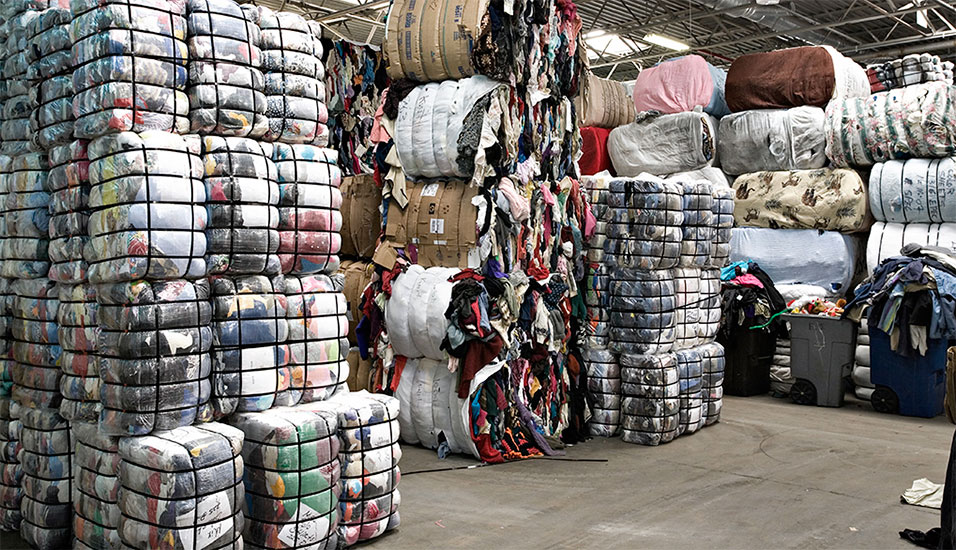
He said any business person interested in selling clothes in Uganda and the region, should instead focus on importing new garments.
He added that the new clothes are expensive but the governments in the region are interested in promoting cotton growing in the bloc and increase household incomes of the citizens who will eventually afford new clothes.
Recently, Rwanda’s President Paul Kagame stated that his country will proceed with the ban on used clothes despite of threats by the US to review trade benefits to the three EAC countries.
“This is the choice we find that we have to make. As far as I am concerned, making the choice is simple, we might suffer consequences. Even when confronted with difficult choices, there is always a way,” he said after officially applying to run for a third term in office, whose election is slated next month.
“Rwanda and other countries in the region that are part of AGOA, have to do other things, we have to grow and establish our industries,” Kagame added.
Tanzania’s Deputy Minister for Foreign Affairs and East African Cooperation, Susan Kolimba told a local daily that the future of the community is bright.
“Differing is common in any group. The good thing about our community is that we have a room for discuss issues, which we have differed from, until we reach a consensus,” she told The Citizen.
Tanzania Private Sector Foundation’s (TPSF) Executive Director Godfrey Simbeye said any decision taken by the US will have a little effect on the country’s economy since there are few industries i that are taking advantage of the market.
US AGOA imports from Rwanda, Tanzania, and Uganda totaled $43 million in 2016, up from $33 million in 2015, according to the USTR.
On the other hand, US exports to Rwanda, Tanzania, and Uganda were $281 million in 2016, up from $257 million the year before, most of which consists of used clothes.
A research carried out by a trade law and policy analyst, Esther Katende-Magezi, dubbed ‘The impact of second hand clothes and shoes in East Africa’ published by the Geneva based CUTS International this year, shows that cotton produced in the EAC is spun and woven in Asia, converted into apparels and shipped to USA and EU to be worn for 2-3 years and shipped back to Africa (EAC) as used clothing, to clothe up to 70% of African population.
In Africa, the EAC is one of the biggest importers of second hand clothes from US, UK and China. In 2013, the EAC total percentage of global used clothes trade amounted to 8%, with 3 % for Kenya, 1.9% for Uganda, 1.9 % for Tanzania, 0.6 % t for Rwanda and 0.2 % for Burundi.
This is the main reason that spinners have consistently expressed concern that there is low demand for fabric because the EAC fabric market is choked with imported second hand clothes which has also led to the closure of several textiles mills that were, for example, performing well in Kenya and Uganda such as Raymond, KIKOM, Mulco, African Textile Mills, Rayon Textiles, and Lira Spinning Mill leading to loss of millions of jobs.
Magezi notes that while the decision could boost the cotton, apparel, textile and leather sectors and ultimately enhance employment a rising from industrialization, the governments could also experience significant losses in tax revenue.
For example, Kenya collected $54 million in tariff revenue on 100,000 tons of imported used clothing in 2013. In 2016, Rwanda nearly tripled its import duty on imported clothing from 35 % to 100 % to encourage purchases from the country’s limited textile mills.
Also, the banning used clothes imports could lead to smuggling of the banned clothing into the EAC countries, especially in the short run due to shortage and the limited ability to afford brand new garments.
“Smuggling would not only promote illicit trade and deny the governments’ tax revenue but also put a higher burden on governments to address smuggling. Further, enforcement of the ban could be at a cost to the governments that would have to put in place measures to implement the ban in the different states,” she said.
How other countries are handling the issue of secondhand clothes
In South Africa, importation of used clothes has been banned. Outside the continent, countries such as India have embraced their cultural attire which is manufactured/ designed locally and therefore reduces demand for second hand cloth imports.
However, using this strategy in EAC would be a challenge given the absence of widely accepted cultural attire and the popularity of Western fashion in the Partner States.
On the other hand, developed countries have focused on improving the competitiveness of their local textile industries and the incomes of their citizens to discourage importation of second hand clothes.
“And they have done this, not overnight, but the industry has been built and developed over the years and in some cases, through family generations, where it is now paying off highly,” she says.
Way forward
The Magezi notes that since the proposed ban will affect both well to do middle class and the poor, it should put the same tax measures on the new clothing so that the pricing of new clothing is as high as that of the used clothes.
She also suggests that banning import of used clothes should be done in a phased approach to soften the impact of the ban on the domestic consumers as well as the source countries.
This, she, says would also make implementation of the ban easier, by putting in place relevant standards that support only the importation of high grade clothes.
She also says that EAC need revise the policy on economic processing zones for domestic supply to increase the percentage of products that can be sold into the EAC market specifically for the cotton, apparel, textile and leather sectors.
“(However), the factors that are affecting industrial production in Africa are not mainly used clothes but the unfavorable conditions for industrial growth and development in some of the partner states. If these conditions such as high electricity tariffs, absence of real tax incentives among others are not addressed, the ban will not achieve its intended goal of boosting progress in the region,” she added.
Moses Ogwal, director Policy Advocacy and Trade at the Private Sector Foundation Uganda told The Independent that while used clothes pose a risk to the textile industry, it will only occur when local production has increased.
He suggests the need to have a mix of used clothes that competes favourably with the newer ones on the market as local industries improves production to meet consumer needs.


